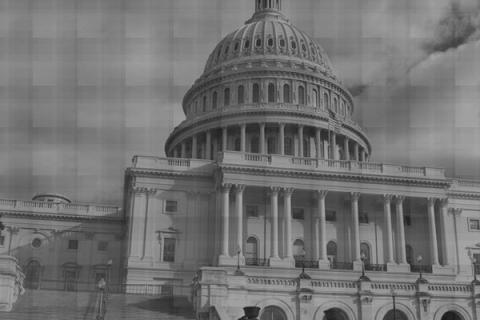Usually clashing over the state budget, both the California Teachers Association (CTA) and the California Republican Party have taken aim at a recently introduced proposal put forth by the Think Long Committee- a bipartisan group of business leaders and former politicians.
"The Think Long Committee Report was supposed to be a bipartisan path to rebuilding California's future, not a dangerous detour that would hurt students and the poor. Educators are alarmed by these recommendations to raise taxes on the poor, lower taxes for corporations, dismantle Proposition 98– the state's minimum school funding law – and avoid repaying $10 billion already owed to public schools and students," said Dean E. Vogel, president of the California Teachers Association in a statement.
As reported by the Sacramento Bee, half of the money raised by Think Long's call to charge sales taxes on services would go to K-12 schools. Included also within the plan would be an elimination of a constitutional requirement which increases state funding for schools in good years to make up for previous cuts.
The paper also reported that the CTA has taken issue with the aspect of Think Long's proposal which appears to make tax revenue conditionally available to the state education system-based on how effectively California's students are being educated- in addition to bringing teacher tenure and seniority into the discussion.
"We believe such new funding should not be automatically given to a system that is failing to educate millions of Californians. It instead should be tied to improving performance of K-12 schools, as a result of rigorous evaluation of teachers, as well as curbs on automatic teacher tenure and seniority," Think Long's report stated.
Although not necessarily coming from the same angle, the California Republican Party hit the proposal for taxes that would be levied on certain services. "I am literally saddened to hear that some believe that a massive new category of taxation is the answer to California's economic or budget problems," said Tom Del Beccaro, chairman of the California Republican Party.
"A new tax, which will be subject to future increases on all small business including business consultants, most independent contractors, financial advisors, insurance brokers, real estate brokers, travel agents, housekeepers, and the accountants and lawyers that service them, will weigh this economy down even more and produce less tax revenue over time not more," he said.
Opposition to the proposal by both the California Teachers Association and the California Republican Party came in a little more than one week, according to the dates of these reports. While the proposal would reduce personal and income tax rates, it would tax services that aren't currently taxed.
"While we tax the sale of a donut eaten in a coffee shop, we don't, for example, tax the sale of legal, consulting, accounting or architectural services. In essence, those who produce goods such as donuts or machinery are subsidizing those who produce services and information," the Think Long proposal stated.
Think Long calls for broadening the tax base to include all services, except for health care and educational services. To ease into the new system, the tax rate would start at 3% and would gradually be bumped to at least 5%. This would begin in July 2013 and culminate in January 2015. As I've noted in previous coverage of this issue, I believe that the extent of this service tax will dictate whether California's voters embrace or reject the proposal.
If the aim of Think Long is to initiate an independent wave of groups putting forth solutions that don't come from the current legislature or from interest groups that have a grip on Sacramento, they've certainly started out with a bang by hitting both sides of the political aisle. They've ruffled the feathers of one of the most influential lobbyists in Democratically-controlled Sacramento by shaking up the CTA. They've also taken a stab at state Republicans by challenging their tax philosophy.
Nicolas Berggruen, chair of the Think Long Committee for California, hinted in a timely op-ed that he wants to stay clear of the type of partisan gridlock seen in the recent failure of the Supercommittee in Congress.
"A dispiriting gridlock continues to grip Washington and Sacramento, undermining the public's faith that democracy can solve our problems. As we write, the so-called supercommittee of Congress, convened to figure a way out of the nation's fiscal crisis, remains hopelessly paralyzed along familiar partisan lines. Everyone knows the sad story in Sacramento," he stated.

